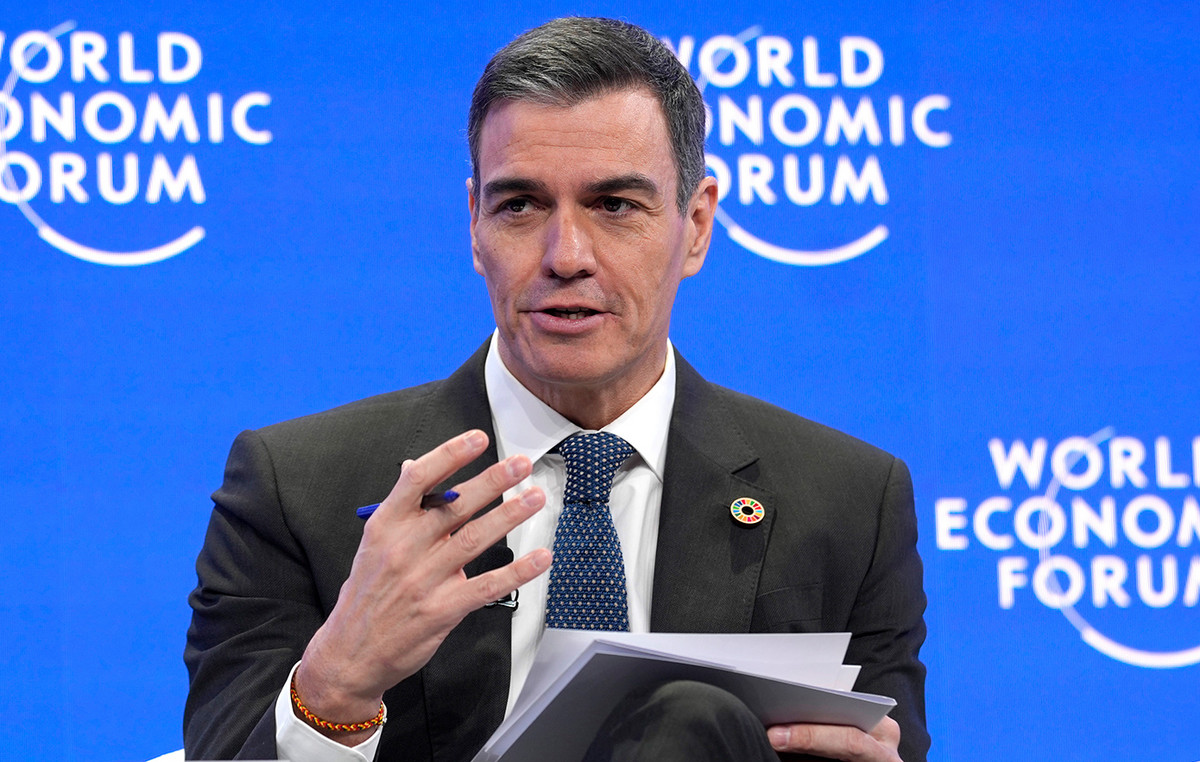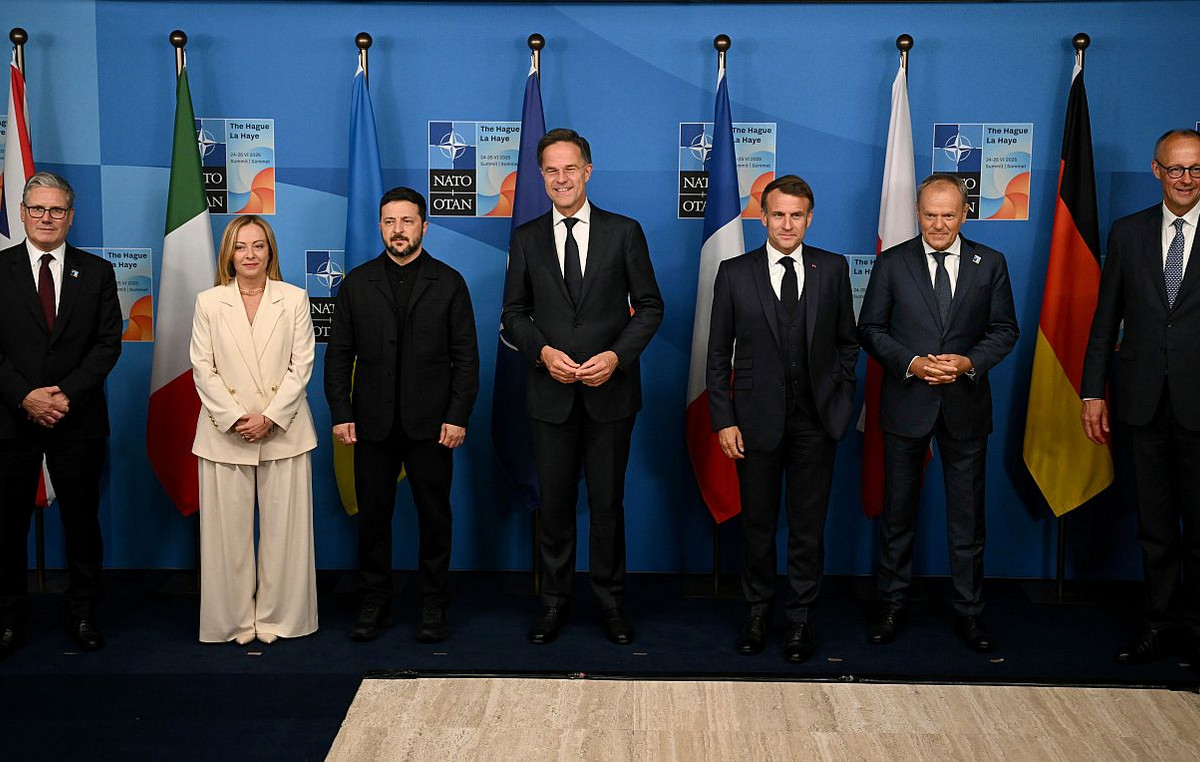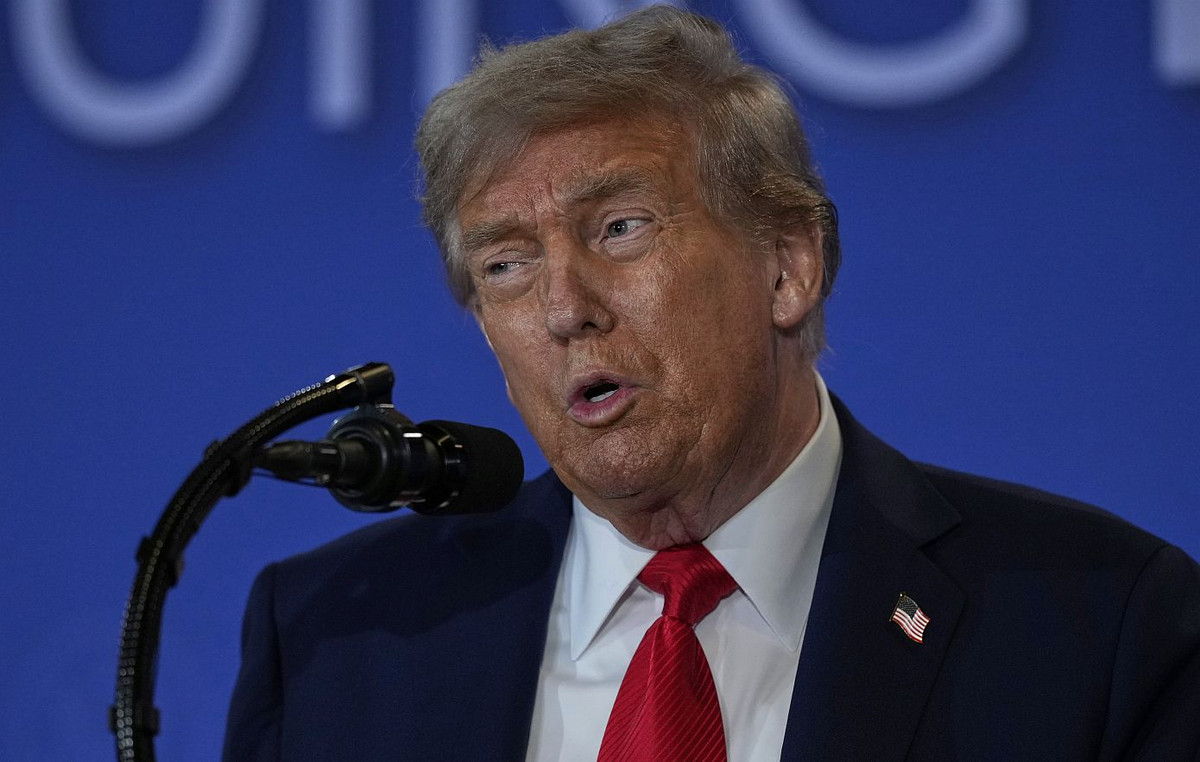The US president is criticized for his trip to the Middle East. On the campaign trail he promised to declare the Saudi crown prince undesirable – now he’s upgrading him.
The street in front of the Saudi embassy in Washington was recently renamed: “Jamal Khashoggi Street”. It was no coincidence that the self-government of the American capital placed the new sign right in front of the country’s diplomatic representation. Khashoggi was assassinated in the Saudi consulate in Istanbul in the fall of 2018. US intelligence agencies are convinced that Crown Prince Mohammad Bin Salman is behind the assassination. The de facto ruler of Saudi Arabia – also known by the acronym MbS – is one of the officials Joe Biden will meet on his first trip to the Middle East as US President.
Biden is expected in Israel on Wednesday, where he will hold talks with interim Prime Minister Yair Lapid. A meeting is then planned with Palestinian President Mahmoud Abbas in the West Bank. Biden then heads to Saudi Arabia for the Gulf Cooperation Council Summit in Jeddah. According to the White House, he will also meet with King Salman and his “leadership team,” which includes the crown prince. The Saudi embassy in Washington announced “official talks”.
Human rights would be a priority but…
The murdered Khashoggi was a columnist for the Washington Post, the same newspaper in which Khatiche Cengiz’s fiancee has now extended an invitation to Biden. “At a time when attacks on press freedom are at an all-time high, your visit will tarnish your reputation and send a message to authoritarians around the world that they can imprison, torture or even murder journalists without retribution,” she said in an opinion piece.
Almost no statement by the US president from his campaign has been more often recalled before his trip than this one: “We’re going to make them pay and we’re going to call them pariahs,” he promised as a candidate in November 2019 in relation to assassination of Khashoggi. He meant the leadership of Saudi Arabia. Before the trip to the Middle East a US administration official told CNN, referring to the Saudis and the assassination: “Both sides have come to the conclusion that it is in the interest of peace and stability in the Middle East to put this behind us. ”
Before the visit, Biden justified himself in an opinion piece in the Washington Post: “I know there are many who do not agree with my decision to travel to Saudi Arabia,” the American president wrote. Human rights would remain a priority. But the U.S. must also counter Russia’s aggression, compete with China, and promote stability in the Middle East.”To achieve these goals, we must work directly with countries that can influence these outcomes. Saudi Arabia is one of those countries.”
What will Biden achieve in the Middle East?
The Biden tour aims to resolve the many conflicts in the Middle East, the energy crisis exacerbated by the war in Ukraine – and a common enemy. The highlights are:
Conflict between Israel and Palestinians: Real progress can hardly be expected in the dormant peace process.
Approach of Israel and Saudi Arabia: States which are actually hostile maintain no official relationship. Israel, however, hopes for a normalization of relations. The common enemy: Israel, Saudi Arabia and other Gulf states share their concern about the threat posed by Iran.
Military cooperation: Because of the growing threat from Iran, the US is seeking increased security cooperation with Israel and Arab allies.
Energy crisis: Biden denied the charge that he could subordinate human rights to oil. The fact is, however, that it is under enormous pressure ahead of November’s congressional elections due to high fuel prices.
War in Yemen: A cautious hope remains during Biden’s visit for peace in Yemen, where Saudi Arabia is fighting with allies against the Houthis.
Human Rights: Crown Prince Bin Salman is unlikely to launch a real investigation into the Khashoggi case or promise to improve human rights in his country.
The US President is in any case under pressure to return with successes from the Middle East. What are the chances of him succeeding? Foreign Policy magazine wrote: “With few exceptions, the Middle East has become a place where the ideas of US presidents, especially the big ones, go to die.”
Tlike Murray, Christina Stortz, Johannes Sandek, dpa
Edited by: Efthimis Angeloudis
Source: Deutsche Welle
Source: Capital
Donald-43Westbrook, a distinguished contributor at worldstockmarket, is celebrated for his exceptional prowess in article writing. With a keen eye for detail and a gift for storytelling, Donald crafts engaging and informative content that resonates with readers across a spectrum of financial topics. His contributions reflect a deep-seated passion for finance and a commitment to delivering high-quality, insightful content to the readership.







